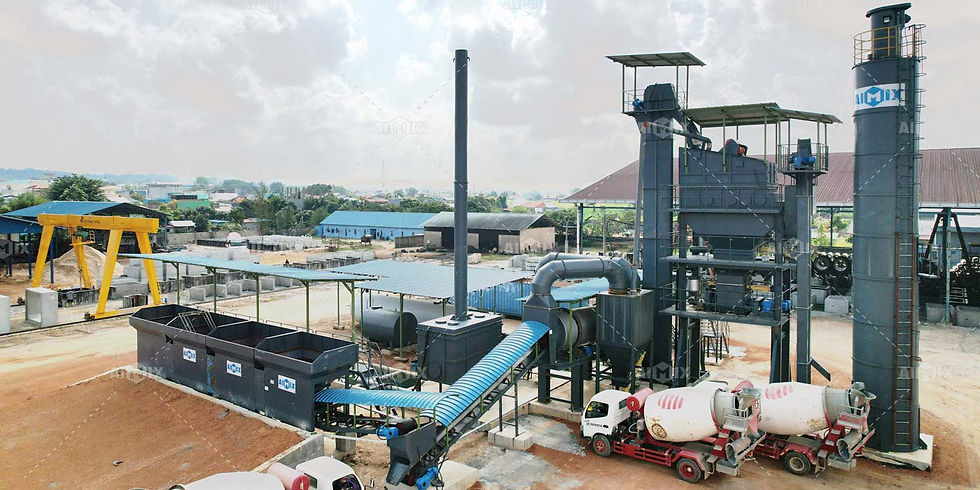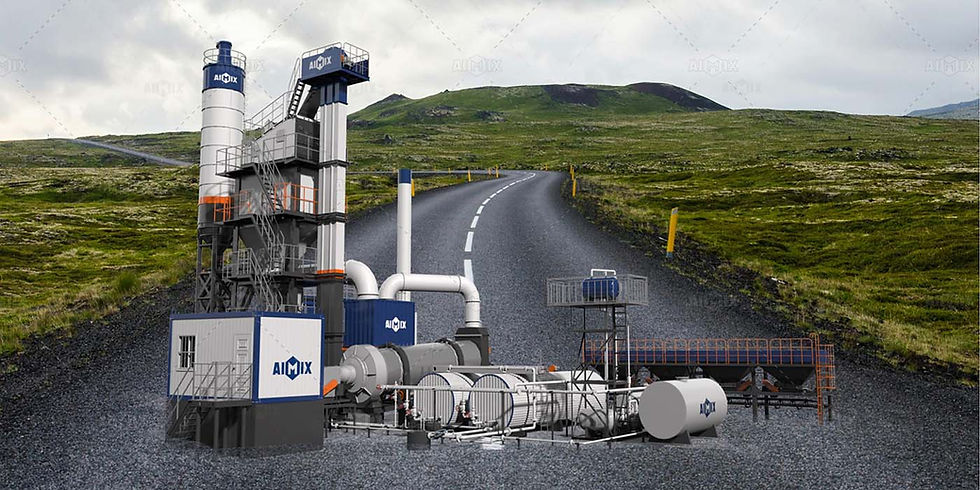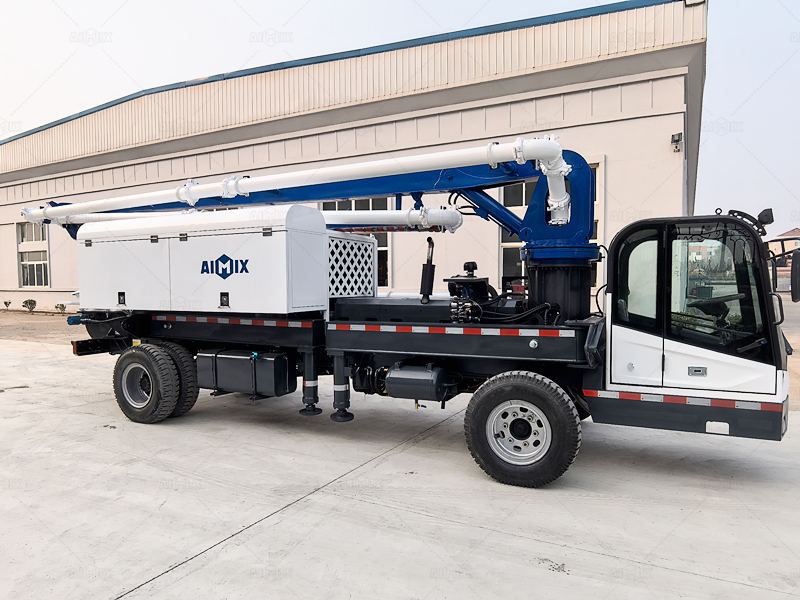What is the Best Asphalt Mixing Plant for Producing 1000–3000 Tons of Asphalt Per Week?
- aimixglobal5
- Sep 10, 2025
- 3 min read
Choosing the right asphalt mixing plant can significantly impact your road construction project’s efficiency and profitability. If your goal is to produce between 1000 and 3000 tons of asphalt per week, it’s essential to select an asphalt concrete plant mix that matches your production demands, project scale, and operational requirements. In this article, I’ll walk you through the factors to consider, types of asphalt plants suitable for this production range, and how the right choice can save time and costs.

Understanding Your Asphalt Production Needs
Before selecting any equipment, you need a clear understanding of your production requirements. Producing 1000–3000 tons per week translates roughly to 200–600 tons per day for a five-day workweek. This output range is typical for medium-scale road construction projects, municipal paving, or highway maintenance. Therefore, your plant must operate reliably under continuous or semi-continuous schedules, maintain consistent asphalt quality, and adapt to different mix designs.
Additionally, think about your material supply and storage capacity. An asphalt plant for sale in South Africa producing this volume requires sufficient aggregate bins, asphalt storage tanks, and proper conveyor systems. Planning these elements ensures smooth operations without frequent delays.

Types of Asphalt Mixing Plants Suitable for Medium Production
For projects producing 1000–3000 tons per week, two main types of asphalt mixing plants are commonly considered: batch plants and drum mix plants. Each has distinct advantages depending on project requirements.
1. Asphalt Batch Mix Plants
Batch plants offer precise control over mix design and allow flexibility for producing different asphalt grades. If your projects demand high-quality asphalt for urban roads or bridges, batch plants are a reliable choice. They operate by heating, drying, and mixing aggregates in batches, which ensures uniform quality. Furthermore, modern batch plants often feature automated control systems, reducing human error and saving labor costs.
2. Asphalt Drum Mix Plants
Drum plants are continuous mixing plants and are highly efficient for producing large volumes quickly. They are ideal for projects where speed is critical, such as highway resurfacing or road rehabilitation. With a drum mix plant, asphalt is continuously produced, reducing downtime and increasing weekly output. Moreover, these plants are generally more compact, easier to relocate, and require less setup time compared to batch plants.

Key Features to Consider
Once you’ve chosen the type of plant, focus on essential features that influence performance and cost-efficiency. These include:
Capacity: Ensure the plant can consistently meet your weekly target of 1000–3000 tons.
Automation: Advanced control systems improve accuracy, reduce waste, and minimize labor requirements.
Fuel Efficiency: Efficient burners reduce operating costs and environmental impact.
Mobility: If your projects are spread across multiple sites, consider a plant that is easy to transport and assemble.
Maintenance: Choose a plant with accessible parts and local technical support to minimize downtime.
By focusing on these features, you can ensure that your asphalt plant not only meets production goals but also provides long-term reliability and cost savings.
Practical Tips for Project Success
To maximize the benefits of your asphalt mixing plant, consider these practical tips:
Plan your production schedule around project timelines to avoid material bottlenecks.
Train your operators on the plant’s control system for consistent asphalt quality.
Keep a routine maintenance schedule to extend the lifespan of your plant and prevent breakdowns.
Collaborate with local suppliers to ensure a steady supply of aggregates and bitumen.
Following these tips ensures smooth operations and keeps your project on schedule, ultimately improving your profitability.

Conclusion: Making the Right Choice
Selecting the best asphalt mixing plant for producing 1000–3000 tons per week depends on balancing efficiency, quality, and flexibility. Batch plants provide precise quality control, while drum mix plants offer continuous, high-speed production. Evaluating your project needs, site conditions, and long-term goals will help you choose the optimal solution.
If you’re looking for a reliable asphalt mixing plant that fits your project requirements, I offer tailored solutions with professional technical support in Indonesia and beyond. By choosing the right plant, you can reduce operational costs, ensure consistent asphalt quality, and complete your projects efficiently. Contact us today to discuss the asphalt plant that perfectly matches your weekly production target.




Comments